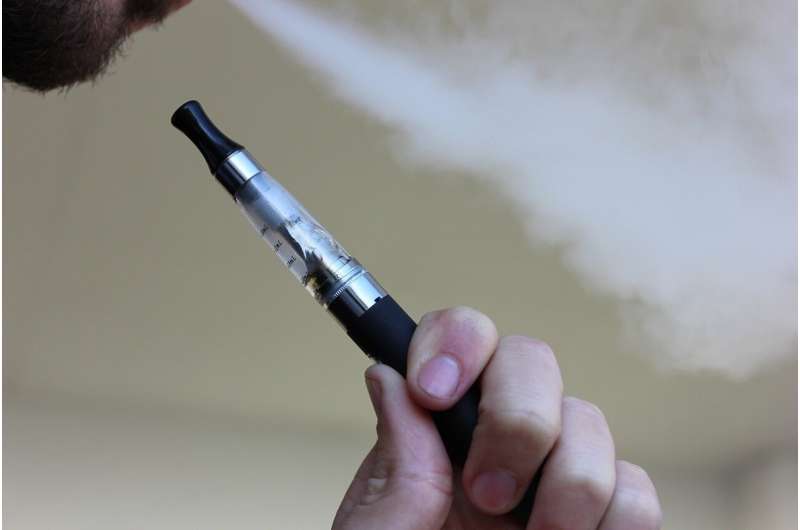Respirologist discusses health risks of vaping

Dr. Erika Penz (MD), a respirologist in the College of Medicine at the University of Saskatchewan (USask), addressed the topic of vaping at a recent MEDTalks public lecture, hosted by the college's alumni association.
"We have more and more concerns coming out around safety of the devices," said Penz. "We have limited data that says e-cigarettes on the whole are safer to use and limited high-quality data around how effective they are to help people to quit smoking."
One of the biggest myths about vaping is that it's just water. In fact, said Penz, it's actually a mixture of toxic chemicals.
"There's very little water, if any, involved in vaping. These are chemicals that are getting heated and inhaled in your lungs," said Penz.
E-cigarettes, also known as vapes, are a battery-powered smoking device, made up of a mod, which contains the battery, and a tank containing nicotine, propylene glycol and liquid flavouring. The battery heats a wick, which burns the liquid that produces an aerosol—or vape—that's inhaled.
As a respirologist, Penz's research focuses on understanding the burden of disease in patients with all types of lung disease, including chronic obstructive pulmonary disease, asthma and lung cancer. She has a particular interest in smoking cessation, and how youth interact with vaping and smoking. Penz earned her undergraduate degree from the Edwards School of Business, before obtaining her medical degree from McMaster University, and master's degrees from the Harvard School of Public Health and York University.
Another myth is that vaping has no health risks. Penz has studied the negative health effects of e-cigarettes, including second-hand vapour exposure. She points to the fall 2019 outbreak of acute vaping-related illnesses in the United States, which resulted in deaths, as an example of health problems.
"We now have a whole host of other things that are now manifesting in the lung, related to vaping," said Penz. "The main symptoms of the people who get vaping-association lung injury are respiratory, gastrointestinal and constitutional symptoms (fever, chills, and sweats)."
Most of the time, people experience a mix of these symptoms, Penz said. Early research on vaping nicotine shows that it develops fat deposits in the lungs. There is also a misconception that vaping is safer than smoking. Unlike tobacco, vaping is an unregulated industry, which means there are no government standards on products and packaging, and there have also been reports of vaping devices exploding.
"You can have issues with things that shouldn't be in (e-cigarettes) but are, like contaminants, metal fragments, infectious organisms, perhaps other drugs that are either intentionally or unintentionally brought into these devices," she said.
Penz also cites safety concerns among the trend in youth who are vaping, especially as their lungs and brains are still developing. The vaping industry is heavily targeting this demographic, with flavours like bubble gum, and advertising that is attractive to a younger audience.
"I absolutely think (vaping) is just rampant among our youth," Penz said. "I think we're in a crisis and I think it will require a lot of commitment by us in the groundswell pressuring decision makers, and then efforts on the part of our government to propose regulation."
Looking back on this 20 years from now, Penz believes the research will reflect the spikes in health issues associated with youth.
"Regulation by our government is very important, I think, in limiting the harm that could happen," she said. "I think the balance of harms outweigh the benefits that are associated with vaping at this point in time."

















